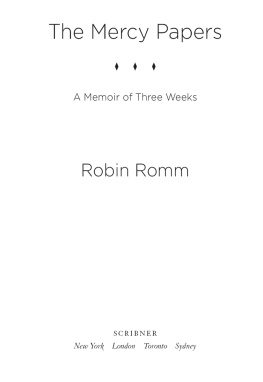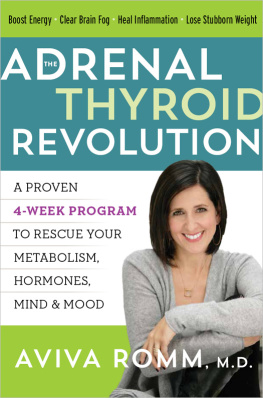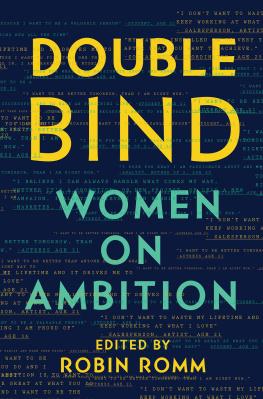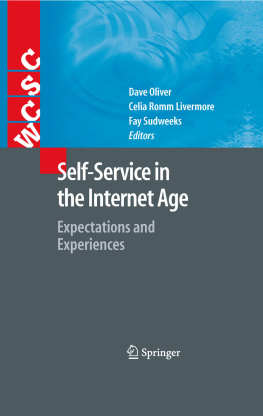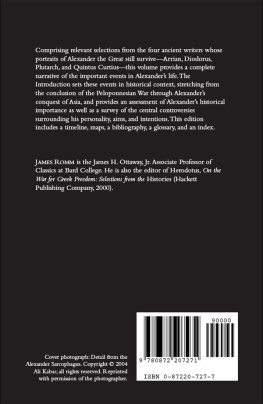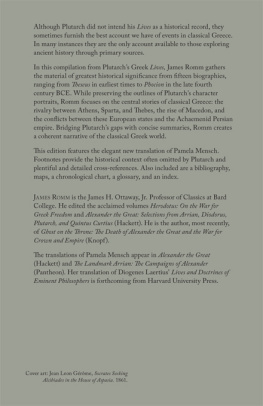B arb, our hospice nurse, has bluish teeth and frizzy black hair styled to look like a hunting cap. The skin around her eyes droops and when you talk to her, she takes too long to respond. She wears loose cotton blouses with patterns of clocks or vines. The woman needs to be startled. In one of the many fantasies Ive concocted over the last few weeks here, I own a mess of owls and they wait, talons clutching the branch in their ornate cage. When Barb comeswhen she looks past me to my mother, past my mother to that voice she listens to when shes not listening to any of usI will set them free in her face.
Barb comes every few days to clip my mothers socks so her swollen feet will fit or to administer more morphine, more Percocet, more fentanyl. Shes building a boat to sail my mother out. She has no interest in my mothers life, the thoughts she had, the cases she won, her family. Barb will build the boat of morphine and pillows and then I will have no mother and the days will be wordless and empty.
I sit on the bed in my childhood room, my cattle dog, Mercy, beside me, and wait for Barb to leave. Sun beats through the small window and skylights, warming the dogs fur. I hold on to my toes. Id like to ask Barb if she likes her line of work, if there is a particular thrill in being so close to it: someone elses tragedyhow much she gets paid and if she thinks work like this will get her into heaven faster.
Barb must be single. I imagine that she goes home at night, takes off her blouse, unhooks her flesh-colored bra, unbuttons those pleated pants, and slides off her mushy sandals. Maybe she turns on one of her tribal CDs, the sound of drumming thrumming through her condo. Maybe she dances a hesitant little hand dance as she runs water in the tub, leaning into the bathroom mirror to inspect her eyebrows. Some nights she thaws chicken from the freezer and stir-fries it with frozen string beans and crinkle-cut carrots. Some nights its just cottage cheese and a glass of wine, her feet aching, the television filling her apartment with blues and grays and noise, keeping out the singing of the ghosts of all the people shes sailed.
I cant help thinking that when Barb dies, shell have to have a hospice nurse. Or maybe shell get hit by a car and not need one. But if she has a hospice nurse, I wonder what shell think. I wonder if shell comply with the way that nurse builds the boat or if shes gotten used to a boat of her own making. I wonder if, in the end, there will be a duel between Barb and her hospice nurse, each struggling over planks and nails. Each trying to get to heaven faster.
It needs to be where you can always find it, Barb says. In the kitchen, I find my father rummaging in a drawer for some tape. He paws through a tray of pens and, finding the last dregs of a roll, secures the paper crookedly to the fridge. DO NOT RESUSCITATE , it commands. My mother sits rigidly at the table. Just a couple of days ago, with a weak chin and shaking hands, she signed her name.
Barb organizes her secret file. She looks at me, squinting a bit, as if she wishes she could shrink me down into a little figurine. She seems to understand that I will complicate the boatbuilding. You, she seems to say, look like trouble.
She gets up from the table. Bye, Jackie, she says to my mother. She doesnt bother with me. My father walks her out.
Once shes safely down the hill and out of sight, we take our drinks to the deck, presumably to enjoy the sun. One of Barbs hobbies is to mess with my moms meds, upping the doses until her jaw hangs slack and her gaze turns watery. But today Mom looks lucid. The afternoon light bleaches her skin, revealing the spattering of freckles across her nose and cheeks. Beside her, in old wooden planter boxes, are the remains of the summer flowers. Theyre starting to turn gray, though the ferns among them are still vividgreen as a childs idea of a crocodile, green as a crayon. The glass table has accumulated a thin film of algae from the wet Oregon winters. Everything here turns green eventually: moss on the roof, the pavement of the overgrown dog run, the trunks of towering fir trees. My mother cant have coffee anymore because of the meds, and besides, her hands have started jerking (a new developmentsomething to do with lack of oxygen). So my dads given her a big plastic glass of water which she asks me to set on the ground.
The problem is, Jackie, that if the oxygen tubes come out, and you cant get them back in by yourself, youll suffocate, my father explains, working the rubbery grip of the wheelchair handle around and around.
My mother trains her eyes on the planter boxes. She seems to be willing the flowers to do somethingjump or die, I cant tell which.
She fell againin the night when no one was with her. My dad and I both heard it: the thud. We ran from our respective bedrooms to find her dazed and annoyed on the navy rug, staring into the woven patterns of men with donkeys and carts like they caused her fall.
Falling is hardly the problem, and we all know it. Maybe the problem is God, the lack of God, the lack of mercy, of grace. Shes been sick nine years, since she was forty-six. So she takes all these pills and weaves around the house alone. Shes attached to tubes to help her breathe. She used to come home from work and run the dishwasher, slap chicken in apricot sauce, gripe about my fathers bad habit of leaving plum pits in glasses along the sofas back, provide our dogs with bones and bowls of mushy food. Shed prowl around after midnight, the late news droning, organizing stacks of bills and baskets of keys into some mom-system my dad and I inevitably messed up. She knew who to call if the roof sprang a leak, if the washer broke, if the little knob inside the fridge fell off. She hired friends of clients to help her move furniture or boxes. She made things happen. Now shes been told she really shouldnt go from the bedroom to the kitchen without the wheelchair and a chaperone.
We keep trying to talk about the problems, but we dont know how. The minute we bring one up, it metastasizes. Maybe the problem is that we keep looking for a problem, something to fix or, at the very least, blame.
I think we need a night nurse, I say, because its concrete, a tiny dam to control one part of this flooding. And because the two weeks Ive been here have proved we really need one.

